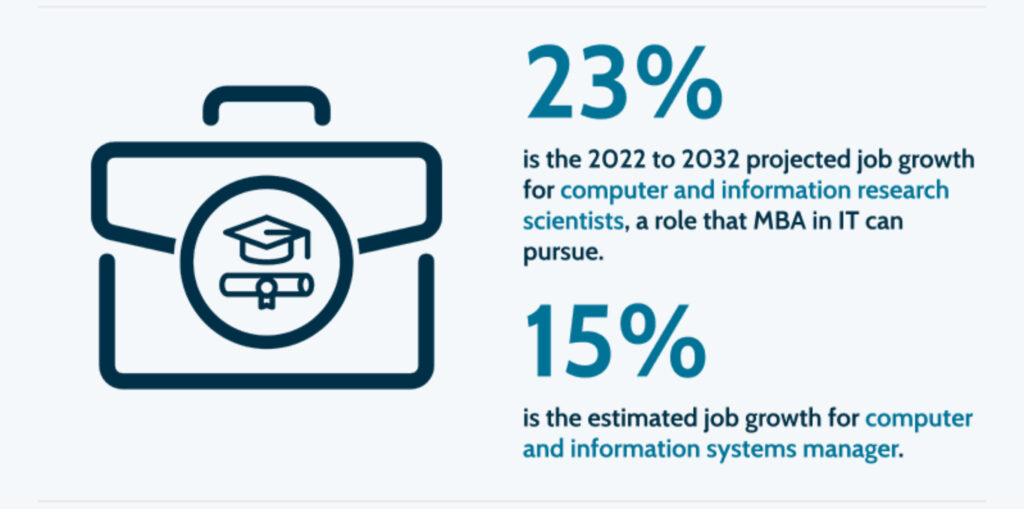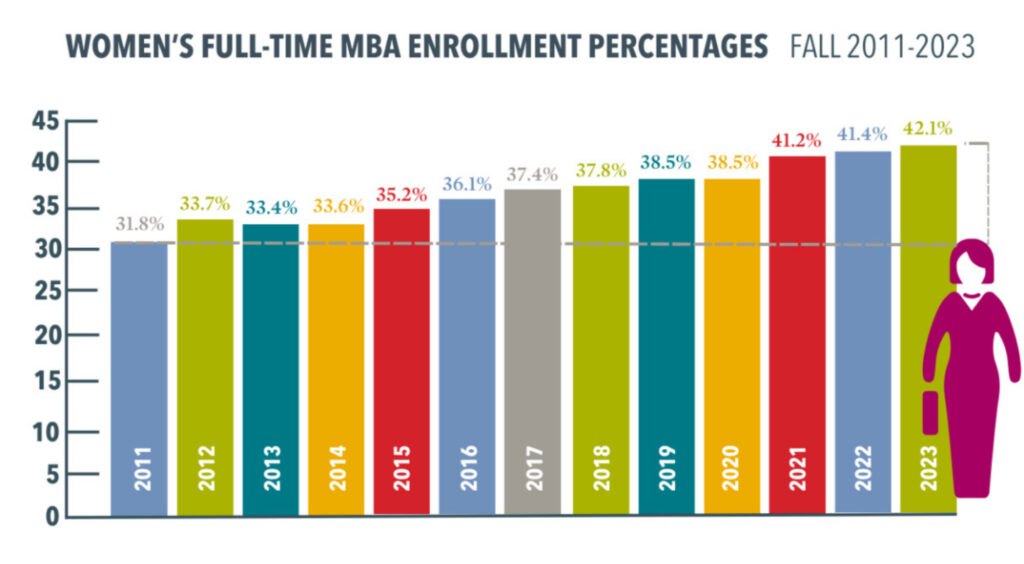Imagine a world where business leaders are not just confined to traditional industries, but are spearheading innovations in technology, sustainability, and even social entrepreneurship. The MBA is evolving to meet these dynamic demands, positioning itself as a versatile degree that prepares you for a future filled with diverse opportunities. As you navigate through this new era, let’s explore the exciting changes and emerging trends shaping the future of the MBA.
“The role of the MBA is expanding beyond boardrooms to impact every facet of modern business and society.”
From integrating cutting-edge technology like AI and blockchain into course curricula, to emphasizing soft skills such as emotional intelligence and ethical leadership, the future of the MBA holds promise for a generation eager to make a difference. So, what does this mean for you? Whether you’re a prospective student, a current professional, or an industry leader, understanding these shifts is crucial for staying ahead of the curve.
Emerging Trends Shaping MBA Programs
Today’s MBA programs are evolving to keep pace with a rapidly changing business environment. With a pronounced shift towards sustainable business practices and corporate social responsibility (CSR), many MBA curricula now include dedicated courses on these topics. This equips graduates with the knowledge to implement and manage sustainability initiatives within organizations, making them highly valuable in the job market.
Additionally, entrepreneurship and innovation are taking center stage. More MBA students are leveraging their business knowledge to launch startups or join the entrepreneurial ecosystem. Programs often offer dedicated resources such as incubators and accelerators to support budding entrepreneurs.
Another significant trend is the increasing emphasis on Environmental, Social, and Governance (ESG) criteria. An explicit focus on ESG not only enhances the holistic perspective of graduates but has also proven to boost their earning potential. Employers are on the lookout for individuals who can navigate complex ESG landscapes, making these graduates particularly sought after.
Healthcare is another industry seeing a surge in demand for MBA graduates. With the growing complexity of managing healthcare organizations, from navigating regulatory frameworks to driving innovation in patient care, an MBA provides a valuable edge. Graduates are being recruited for key roles that require both business acumen and healthcare expertise.
Moreover, the demand for analytical and technological skills is skyrocketing. As industries scramble to innovate and keep up with technological advancements, MBA graduates equipped with these skills are essential for driving business innovation. From data analytics to digital transformation initiatives, their role is critical in strategic decision-making processes.
While the MBA continues to open doors to a plethora of career opportunities, there’s a noticeable shift in the types of positions graduates are securing. Fewer are starting in entry or junior roles, which indicates the robustness and growing recognition of the MBA credential. However, a smaller share of graduates are entering directly into director and executive-level positions, suggesting a competitive landscape at the higher echelons of management.
Overall, the future of MBA programs looks vibrant with diverse opportunities spanning various sectors such as consulting, finance, technology, healthcare, and entrepreneurship. As the business world continues to evolve, so too will the MBA, ensuring graduates remain at the forefront of industry trends and innovations.
How Technology Is Revolutionizing MBA Education
Technology is at the forefront of transforming MBA education, making programs more accessible and interactive. Online learning platforms have broken geographical barriers, enabling students from different parts of the world to join top-tier programs without relocating. Interactive tools like virtual simulations and AI-driven analytics offer hands-on experiences that mimic real-world business challenges. This shift not just enhances learning but also equips you with the digital competencies required in today’s job market.
Moreover, the integration of Big Data and artificial intelligence into curricula allows for data-driven decision-making, a skill that is in high demand across industries. You’ll find that many MBA programs now offer specialized courses in data analytics, machine learning, and technology management, providing you with a competitive edge.
Additionally, networking has taken on a new dimension in the tech-enhanced learning environment. Virtual collaboration tools facilitate effective group projects and interactions with industry experts, making it easier to build a robust professional network.
All these technological advancements are ensuring that MBA programs remain relevant, dynamic, and attuned to the needs of modern businesses. As you navigate through your MBA journey, embracing these tech tools will be crucial for your success in the ever-evolving business landscape.

Sustainability and Ethics: The New MBA Pillars
As businesses increasingly prioritize sustainable practices and ethical considerations, MBA programs are adapting to meet these demands. Today’s MBA curricula often include explicit focuses on Environmental, Social, and Governance (ESG) factors, emphasizing their importance in shaping responsible business leaders. This shift is not just theoretical; it gives graduates a competitive edge, often translating into higher average salaries for those versed in these areas.
By integrating these crucial themes into their programs, MBA schools are equipping students with the skills needed to make informed decisions that benefit both their organizations and society at large. This dual emphasis on sustainability and ethics prepares you to navigate complex moral landscapes and drive impactful change in an era where corporate responsibility is more critical than ever.
Furthermore, this trend extends beyond traditional business disciplines. As you explore topics like sustainable finance, eco-friendly supply chain management, and ethical leadership, you are prepared to tackle the pressing challenges of our time. These programs not only broaden your knowledge base but also inspire you to become a champion for sustainability and ethics in your career.
Globalization and Its Impact on MBA Curriculums
As businesses expand across borders, MBA programs are evolving to equip graduates with the necessary tools to thrive in a global marketplace. Courses now emphasize cross-cultural competency, international economics, and global business strategies. This means that you, as an MBA student, can expect to engage in case studies involving multinational companies, participate in global immersion experiences, and even take part in exchange programs with partner institutions worldwide.
Moreover, the integration of technology is making it easier than ever for students to gain international experience. Virtual classrooms allow you to collaborate with peers from different countries, offering a firsthand understanding of diverse business practices. These experiences are invaluable, providing a global perspective that is increasingly sought after by employers.
Furthermore, many MBA programs are forging partnerships with international businesses to offer internships and project opportunities abroad. This practical experience allows you to apply classroom knowledge in real-world settings, solving complex business problems on a global scale. You’ll find that these opportunities not only enhance your learning but also significantly boost your employability.
The emphasis on globalization also prepares MBA graduates to navigate the challenges and opportunities of operating in different cultural and regulatory environments. With cross-cultural communication skills and an understanding of global markets, you will be well-equipped to lead multinational teams, manage international projects, and drive global business initiatives. In essence, an MBA with a global focus opens doors to a myriad of career opportunities, making it a valuable investment for aspiring business leaders.
AI and Data Analytics: Driving Decisions in MBA Programs
- Many MBA programs now include courses focused on AI and data analytics as essential components of the curriculum.
- Employers are increasingly seeking MBA graduates who possess strong analytical and technological skills.
- Data-driven decision-making is becoming a critical competence for leadership roles within organizations.
- MBAs with expertise in AI and data analytics are often preferred for roles in technology management, product management, and business development.
- Practical experience with data analytics tools and platforms is increasingly integrated into MBA coursework.
- Consulting firms highly value MBA graduates who can leverage data analytics to solve intricate business challenges.
- AI technologies are being used to personalize learning experiences in MBA programs, enhancing student outcomes.
The Future of MBA Specializations: What to Expect
With the ever-evolving business landscape, specialized MBA programs are becoming more relevant. No longer confined to traditional domains like finance and marketing, MBA programs are diversifying to include emerging sectors and skill sets.
For instance, sustainability and corporate social responsibility (CSR) are not just buzzwords but key focal points for many modern MBA initiatives. MBA graduates are expected to lead in creating sustainable business models and driving ethical practices in their respective fields.
Additionally, the advent of technology has introduced specializations that delve into big data, artificial intelligence (AI), and cybersecurity. These programs equip you with the necessary tools to leverage technological advancements for business growth and innovation.
Moreover, the healthcare sector is seeing a rise in demand for MBAs, with specialized tracks in healthcare management. This reflects the growing complexity and need for skilled leadership in healthcare administration and policy-making.
Entrepreneurship and innovation are also becoming increasingly popular specializations. Whether you’re aiming to launch your own startup or drive innovation within an established company, these programs provide essential skills and a robust network to support your entrepreneurial journey.
Finally, with the increasing globalization of businesses, international business and cross-cultural managementspecializations are gaining traction. These programs prepare graduates to navigate and succeed in a multifaceted global market.
In summary, the future of MBA specializations is bright and diverse, offering a range of paths tailored to the evolving demands of the business world. Whether your interest lies in sustainability, technology, healthcare, entrepreneurship, or global business, there’s likely a specialization that aligns perfectly with your career aspirations.
Entrepreneurship and Innovation: Key Components of the Modern MBA
As an MBA student, you’ll find that entrepreneurship and innovation are vital aspects of the curriculum. These elements equip you with the knowledge and skills needed to navigate and excel within the dynamic entrepreneurial ecosystem. Leveraging your business acumen, you can explore opportunities ranging from launching your own startup to driving growth within established companies.
One of the key trends is the emphasis on sustainable business practices and corporate social responsibility. In today’s business world, success isn’t just about financial performance; it’s also about making a positive impact on society and the environment. MBA programs are increasingly incorporating these principles, preparing you to be a responsible and forward-thinking leader.
Moreover, analytical and technological skills are highly valued. With the rise of big data and AI, your ability to harness these tools to drive innovation can set you apart in the competitive job market. Classes and projects focused on data analytics, digital transformation, and tech-enabled solutions are becoming integral parts of MBA syllabuses.
Of course, strong leadership and communication skills are critical for any aspiring entrepreneur or innovator. MBA programs provide numerous opportunities to hone these abilities through group projects, presentations, and leadership seminars. You’ll be challenged to think critically, make strategic decisions, and articulate your vision effectively.
Ultimately, a modern MBA can open doors across various sectors, including consulting, finance, technology, and healthcare. As you navigate your career, remember that success will depend on continuous learning, adaptability, and your willingness to seize new opportunities. embracing By the principles of entrepreneurship and innovation, you’ll be well-positioned to thrive in an ever-changing business landscape.

Women in Business: How MBA Programs Are Evolving
Women are steadily making their mark in the business world, and MBA programs are evolving to support and enhance their journey. From mentorship programs to dedicated scholarships, business schools are actively working to create an inclusive environment where women can thrive. This shift is not only about increasing the number of female students but also about enriching their experience and ensuring their success post-graduation.
Leadership Programs Tailored for Women
Many MBA programs are now offering specialized leadership initiatives focused on empowering women. These programs are designed to address unique challenges faced by women in business, such as gender bias and work-life balance. Workshops, networking events, and speaker series featuring successful female executives provide valuable insights and inspire future leaders.
Flexible Learning Options
Understanding the diverse needs of women, especially those balancing careers and family life, MBA programs are increasingly flexible. Options such as part-time courses, online modules, and hybrid learning models make it easier for women to pursue their degrees without sacrificing other commitments. This flexibility encourages more women to enroll and complete their MBAs.
Supportive Networks and Mentorship
Strong support networks and mentorship opportunities are critical for women in MBA programs. Business schools are fostering communities where female students can connect, share experiences, and support each other. Additionally, many programs pair students with mentors who provide guidance, help navigate career paths, and open doors to new opportunities.
Focus on Diversity and Inclusion
Diversity and inclusion are at the forefront of modern MBA curriculums. Programs emphasize the importance of diverse perspectives in driving innovation and success in business. By celebrating diversity and actively working to include women in all aspects of business education, MBA programs are helping to build a more equitable future.
As MBA programs continue to evolve, they are not only preparing women to succeed in their careers but also shaping a more inclusive and dynamic business landscape for all.
How MBAs Are Adapting to Remote and Flexible Work Models
With the rise of remote and flexible work models, MBA programs are rapidly evolving to meet the demands of modern workplaces. These changes are not merely superficial adjustments; they’re significant shifts that touch on various aspects of the MBA experience.
For starters, MBA curriculums are increasingly incorporating virtual collaboration tools and project management software. Students are learning to lead virtual teams, manage remote projects, and communicate effectively across time zones. This not only prepares you for today’s job market but also equips you with skills that are becoming essential in almost every industry.
Hybrid Learning Environments
Many MBA programs are adopting hybrid learning models, combining online and in-person instruction. This flexibility allows you to balance personal commitments while pursuing your degree. Moreover, the hybrid model mirrors the work environment you’re likely to encounter post-graduation, providing a practical learning experience.
Virtual Networking Opportunities
Your network is one of the most valuable assets you gain from an MBA, and virtual platforms are making it easier to connect. Webinars, virtual coffee chats, and online career fairs offer you new ways to build professional relationships, regardless of geographical barriers.
Flexible Internships and Projects
The modern MBA experience includes flexible internships and project opportunities that can be completed remotely. These allow you to gain real-world experience without being tied to one location, making it easier to explore different industries and roles.
In summary, MBAs are adapting to remote and flexible work models through innovative curriculum updates, hybrid learning, and enhanced networking opportunities. As a result, you’ll be well-prepared to thrive in a dynamic, ever-evolving job market.
The Impact of Cultural Diversity in MBA Classrooms
| Region | Percentage of International Students | Key Benefits |
|---|---|---|
| North America | 40% | Enhanced networking opportunities, broader perspectives in discussions |
| Europe | 60% | Diverse cultural exposure, increased language skills |
| Asia | 30% | Growing market insights, cross-cultural negotiation skills |
| Australia | 50% | Regional business acumen, exposure to Pacific economies |
The table highlights how diverse the MBA classrooms have become, reflecting a microcosm of the global business environment. This melting pot of cultures and backgrounds unveils several key advantages for students. MBA candidates are increasingly finding value in these multicultural settings, learning not just from academic coursework but from their peers’ varied experiences and viewpoints.
Moreover, the growing presence of international students presents unique networking opportunities. As you interact with peers from around the world, you build a global network that can open doors to international career opportunities, collaborations, and even lifelong friendships.
In addition to networking, heightened cultural exchanges foster expanded perspectives. You gain deeper insights into different market dynamics and business practices, equipping you with the necessary tools to navigate the complexities of a globalized economy. These interactions are invaluable, as they not only enrich your academic journey but also prepare you for leadership roles in diverse settings.
As we look towards the future, MBA programs will likely continue to emphasize cultural diversity as a cornerstone of their value proposition. Schools are increasingly incorporating global immersion experiences, language training, and courses that focus on international business strategies. By doing so, they ensure that graduates are well-prepared to lead with a global mindset, regardless of where their careers take them.





Social Media